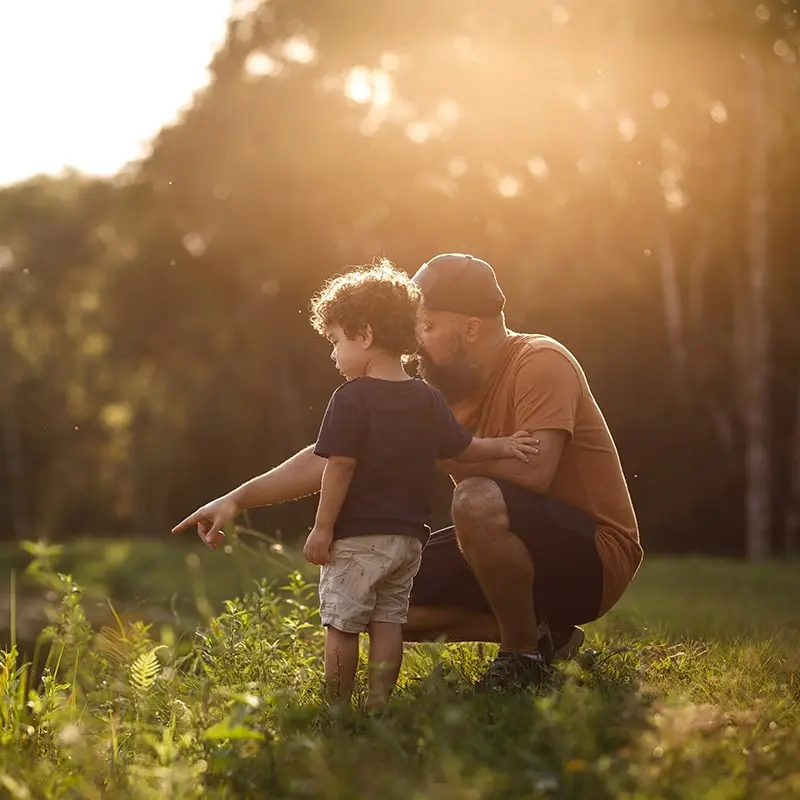Let’s face it: learning to be a human is hard. You have to learn everything, and I mean everything. Walking, grabbing, words, expressions, manners, colors, left and right, getting along with friends…whew! It’s no wonder toddlers, preschoolers, and little kids get moody. Imagine feeling like you’re entering into the sea of the nearly completely unknown every day!
Then just when you think you’ve got the hang of it and you can start doing things yourself, wham! Not so fast…you are stronger, but that bag is too heavy. You can dress yourself, but not for this special event. You can put away your toys, but not these glass dishes. Just when you think you know what’s going on, the rules change. That would be a recipe for a meltdown for anyone!
We all make mistakes. Don’t let your child feel judged based on their worst day. Add “I Am Good in My Heart” to your home library of books today!
In the midst of all this controlled (or not) chaos, our children are writing their very own growing up story. Instead of a literal written book, this story is the one they’ll remember through their teen years and as they become adults. It is the foundation for their beliefs about themselves that will stick with them all through their adulthood.
While parenting is practically impossible to nail down to perfection, there are some ways we can make the extra effort to make our children’s growing up stories encouraging ones that will serve them well instead of give them challenges to later hash out with a therapist!
A Growing Up Story Gives Fuel for That Figurative Book of Life
According to research, children spend the first roughly eight years of their lives operating in a largely subconscious state. This means everything they hear, feel, see, read in books, etc. is going straight into their subconscious mind where it slowly becomes incorporated into their overall picture of the world. If children are exposed to excessive criticism, they can become unsure of themselves or over-critical of others. Encouragement, on the other hand, can provide a foundation of confidence, appropriate positive self-worth, and the strength to overcome obstacles.
This is not to say kids should be coddled. On the contrary, not being encouraged to come up with their own solutions can lead a child to become overly dependent on others and lack self-confidence. But, if you as a parent can provide a healthy balance of encouragement and guidance, your child is likely to grow up into an independent adult who is capable of taking on whatever life throws their way!
Determining what that balance is, however, is the tricky part. Like I said, picture perfect parenting is not really a thing, no matter how many parenting books you read (and you know how much I love books!). You’ll find a flying Martian rainbow unicorn making apple pie in your backyard first. However, we can definitely make some changes or take some different approaches in our daily parenting tactics to help make a difference in your sweet kiddo’s growing up story.
A Successful Growing Up Story: 12 Tips for Making This Mission Possible
Take a deep breath, parents. You’ve got this. We’ve all made parenting mis-steps, but today you may find the tip that makes a difference tomorrow. Here are some ways you can make your child’s growing up story more encouraging and less challenging. Find the ones that work the best for your family and make the brightest story possible!
Involve them in family decision making.
This helps children feel like they are a valued member of the family and gives them a sense of ownership and responsibility. It also helps them feel that their words are being heard, even at a young age, so they feel encouraged to speak up. We want to raise kids who become adults who actively participate in life, not become doormats because they are afraid to voice thoughts and opinions.
Encourage expression of feelings.
Validating a child’s emotions helps them feel heard. It also teaches them how to appropriately express themselves and cope with their emotions, setting the stage for healthy relationships later in life. Especially when it comes to negative emotions, research suggests that kids are best off being shown healthy ways to express those feelings instead of suppressing them.
Instill healthy social skills.
You’ve probably heard the classic saying, “it takes a village.” Well, it’s true. Helping little ones develop healthy social skills not only allows them to better interact with their peers, but helps them understand and relate to people in general. This is a skill that will come in handy at any age and throughout their lives! Books and stories about friendship are also helpful.
Be a role model.
You are your child’s first and most influential teacher. If you want them to be confident, be confident (or at least do your best to act like it). If you want them to show empathy, show empathy. If you want them to read books, make sure they see you when you read books. Children learn by example from their family more than anything, so make sure you are the type of person you want them to become.
Give choices.
Too many choices can be overwhelming, especially at a very young age, but two appropriate choices can help a child feel empowered and in control. This may be as simple as asking if they want to read the illustrated cat picture book or the new robot book. This also helps them practice making decisions, an important skill they will use while growing up and their whole lives.
Encourage independence.
Giving a child the opportunity to do things for themselves helps them learn about their own limitations and abilities. It also helps them to develop a sense of independence and self-reliance, both important traits for adults. It’s also vital for them to understand that it’s also okay to ask for help when they need it – age appropriate books and stories that incorporate themes of independence are one of the best ways to do this.
Is your toddler or preschool age child struggling with what they can and can’t do? Let the book “I Am Bigger“ help them celebrate success and say “That’s okay!” when they still need help.
Be there for them.
This one seems quite obvious, but it’s still worth mentioning just as a reminder. Sometimes all kids need is a listening ear and a shoulder to cry on. Make intentional time for your child every day and be there for them no matter what. This is especially important as they begin spending more time at school and away from the family.

Follow routines that work for your family.
Routines are a great way for kids to feel a sense of control because they know what to expect and what will come next. This can help reduce anxiety and stress. Plus, it makes life a little easier for parents as well and helps them get prepared for more strict routines when they go to school. Reading books together at specific times of day is a great routine that helps you spend quality time together, too!
Avoid overprotectiveness.
Ugh. This one is so hard, especially with all the very real dangers and challenges that children face. Try setting healthy boundaries (for example: “We don’t jump from higher than 3 feet” or “I have to be able to see you from where I am – if you can’t see me, I can’t see you!”) and stick to them. When I still feel the anxiety rising, I remember allllll the things I did as a kid growing up on a farm (oh, the stories…) and survived safely into adulthood. I also keep in mind that if accidents do happen, help is available. I’m not on my own, and neither are you.
Encourage asking questions.
I know, I know. Four year olds (and five year olds, and six year olds…) already ask a million questions. But sometimes we inadvertently discourage questioning by shutting down their inquiries or getting frustrated with them. A better tactic is to answer their questions patiently and encourage them to ask more. Consider buying or borrowing books from school or the public library that help them answer their own questions, too. Books help promote critical thinking and a love of learning. You’ll thank yourself later that you put in a few extra moments now, and books really do create lasting and meaningful growing up memories.
Praise effort, not results.
This is such an important one. We all want our kids to succeed, but it’s important to praise their effort instead of solely focusing on the outcome. This helps them understand that it’s okay to fail and that trying is what’s important, as long as they are genuinely trying their best and also learning the lesson from the failed attempt. It also helps build resilience, another key trait for adults. The words we use are more than just words – they create beliefs that last a lifetime. That’s why I’m very choosy about the words I use in my books for children.
Encourage friendships.
Friendships help children learn about themselves and others. Friends provide support and a sense of belonging, both important for healthy development. Friendship also teaches empathy and is the best way to start learning how to resolve conflicts. So encourage your kids to get out there and make new friends!
Is your little one just starting to make friends or finding play dates challenging? Get grounded in friendship with the Belle Green book “I Am a Good Friend.“
Help Them Create a Growing Up Story They’ll Love to Remember
Hopefully you found a tidbit or two in that list that will come to your rescue when it comes to giving your kiddos a healthy, grounded foundation and create that growing up story that continues to serve them on into adulthood. Even if you, yourself, had a challenging childhood that was hardly the picture of perfection, you can turn that ship around and give your children the one you wish you had. It all starts with the choices you make day by day in how you respond to them.
Patience is a family survival skill for parents. Implementing each of these tactics does require some patience, both with your kids and with yourself. Remember that your child is learning and processing new information all the time. Just because he or she doesn’t always show it doesn’t mean they aren’t feeling challenged by what’s going on. Stay the course, be kind to yourself, and soon you’ll see big changes in your child’s confidence and independence. That means they are well on their way to creating a new and improved growing up story that will serve them well as they continue to grow and mature.
Whether you’re implementing a new routine or two, taking extra time to listen or answer questions, helping navigate relationships with new friends, or teaching manners, parenting takes a lot out of us. Congratulate yourself for getting this far and re-commit to yourself and your kids and the words you choose to use with them, because really nothing else matters more than this.
The Power of Books in Your Little Ones’ Growing Up Stories
Don’t discount the transformative power of words and the influence of books when it comes to creating powerful growing up stories. Most of us remember one or two books our parents, grandparents, or school teachers read to us at a young age that we still recall with vivid emotion. Whether it’s fiction or fun non-fiction, illustrated or simply using your imagination for pictures, books are a priceless investment in our kids.
For me, I loved being read to at school after lunch by my teachers. Some of my favorites were the Soup book series, a hilarious account of a boy growing up in the 1920s (not fiction, but told in a very entertaining way!) perfect for slightly children, Trumpet of the Swan, a lesser-known book by E.B. White, the fiction book author of Charlotte’s Web, and Gus and the Baby Ghost an oldie but a goodie illustrated book that my mom would read to me that is fun for any age child but targeted for four to eight year olds. Don’t forget striking and memorable picture books that have been fan favorites for years, Where the Wild Things Are (Amazon says it’s for one to five year olds but I say it’s good for all ages!) and The Very Hungry Caterpillar for year one to three year olds!. I love new books, but I have to admit that I’m still a sucker for these classic illustrated books!
Whether it’s illustrated picture books, books with clear life lessons, fiction books that use stories to impart values, or simply books that are just for fun, books and stories are critical development tools for little ones. The books and stories you read with your kiddos at a young age will stick with them for life. Get started creating new memories with Belle Green books today.
Check reviews and pricing on Amazon for I Am Bigger by Belle Green
Check reviews and pricing on Amazon for I Am Good in My Heart by Belle Green
Check reviews and pricing on Amazon for I Am a Good Friend by Belle Green
Check reviews and pricing on Amazon for Trumpet of the Swan by E.B. White
Check reviews and pricing on Amazon for Charlotte’s Web by E.B. White
Check reviews and pricing on Amazon for Gus and the Baby Ghost by Jane Thayer
Check reviews and pricing on the Soup books by Robert Newton Peck


